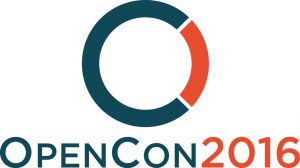Would you agree that the Digital Age and the Academic Internet are bringing the scientific world closer together?
 OpenCon is the annual gathering of #OpenAccess, #OpenEducation and #OpenData enthusiasts and gives rise to numerous satellite events across the globe each year, many of which were hosted across the African continent e.g. in Ghana, Cameroon, Kenya, South Africa, Nigeria, Niger, Benin, Liberia and Egypt.
OpenCon is the annual gathering of #OpenAccess, #OpenEducation and #OpenData enthusiasts and gives rise to numerous satellite events across the globe each year, many of which were hosted across the African continent e.g. in Ghana, Cameroon, Kenya, South Africa, Nigeria, Niger, Benin, Liberia and Egypt.
The Berlin-based Satellite #OpenConBerlin 2016 covered three days from November 24 to 26 and kicked off with an open science hackathon on day1. The second day brought together MEP Julia Reda with her sharp analysis of the European copyright reform; Natalia Manola on text and data mining, the next step in open access; Stephanie Dawson presenting the open collaboration platform ScienceOpen; Hollydawn Murray from the Open Science publishing platform F1000Research; Oliver Sauter from WorldBrain, the open peer review web service; Felix Evert explained how #OpenCollaboration can work via Micropublications; Kerstin Helbig on how open research data management happens at the Humboldt University; Peter Kraker and colleagues with their new science literature research tool OK Maps.
“The Future of Open Collaboration” was discussed between the audience, Overleaf’s John Hammersley, Authorea’s Karolina Mosiadz and PaperHive’s Alexander Naydenov – moderated by Jon Tennant.
A List of the Open Science Collaboration Services that were present and presented:
- Altmetric – to track and analyse the online activity around scholarly research outputs
- Connected Researchers – keeps researchers updated on new digital tools
- Digital Science – a digital tools hub for researchers
- F1000Research – an Open Science publishing platform
- figshare – an online data repository, citable via a doi
- hypothes.is – a browser plug-in to annotate web pages
- Innovations in Scholarly Communication – Reflection of the way information is created, shared, and processed in academia
- Open Knowledge Maps – a visual interface to the world’s scientific knowledge that drastically escalates the discoverability of research articles – give it a try and be mind-blown
- OpenAIRE – Open access to scientific peer reviewed publications has been anchored as an underlying principle in the Horizon 2020
- Overleaf – LATEX-based collaborative writing
- PaperHive – collaborative reading and annotating
- Protocols.io – a collaborative protocol-centered platform
- RIO Journal – a publisher for all outputs of the research cycle
- Sample of Science – open peer-sharing for scientific samples
- ScienceOpen – open collaboration platform
- WorldBrain – Open Source search engine
On the third day, participants had a brainstorming session to develop ideas which next steps to take and how to grow the Berlin Open Science community. We also discussed how the Global South could benefit more from Open Science resources, particularly in Africa.
A first step would be to raise awareness on the vast possibilities and interaction modalities that digital resources and tools specifically for scientists provide and how else to do that through blog posts like this one and spreading the word via the OpenCon channels.
OpenConBerlin co-organizers
OpenAIRE & ScienceOpen & Digital Science // sponsered by Figshare and Overleaf
Related tweets
Further reading
Nic Schmelling‘s wrap up: github.com/…/2016-11-25-opencon-berlin-wrap-up.md
Storify: digital-science.com/…/opencon-berlin-storify-summary-openconberlin/
